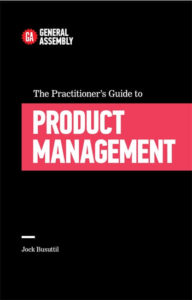
PRODUCTHEAD: Strongly-held beliefs
PRODUCTHEAD is a regular newsletter of product management goodness,
curated by Jock Busuttil.
faithless the wonder product
tl;dr
People more easily accept they’re not seeing the whole picture than being told they’re wrong
Don’t make people feel bad about their beliefs — be kind and connect with them
Research shows that we interpret words like “we believe” with differing confidence levels
There is often a lack of discipline when it comes to talking about uncertainty
a favour: please share this with other product people
every PRODUCTHEAD edition is online for you to refer back to
hello
A slightly strange inspiration for today’s PRODUCTHEAD: a judge’s reprimand.
If you’ve been following the news recently, you may have seen reports on the conclusion of Alex Jones’s defamation trial in Texas, for which he has been ordered to pay $49.3 in damages after falsely claiming the 2012 Sandy Hook school shooting was a hoax.
A clip of Judge Maya Guerra Gamble has been doing the rounds:
[JONES] Yes, I believe what I said was true so …
[GAMBLE] Yes, you believe everything you say is true, but it isn’t. Your beliefs do not make something true. That is, that is what we’re doing here. Just because you claim to think something is true does not make it true. It does not protect you. It is not allowed. You are under oath: that means things must actually be true when you say them.
…
If you don’t know something you don’t say it. If you’re asked about your opinion, you can give your opinion. But if you’re asked to relate something that is truthful and a fact, it must be truthful and a fact. Not an assumption. Not a guess. Not an opinion. Do you understand?
Transcript of Judge Maya Gamble speaking to Alex Jones at his defamation trial in Texas in 2022
“Your beliefs do not make something true.” #
When people tell me why they don’t need any substantial user research, or discovery, or prototyping before jumping straight into a product build, they genuinely believe they know everything they need to, and are confident that they’re on solid ground to proceed.
In response, I usually turn to Daniel Kahneman’s Thinking, Fast and Slow as my touchpoint. I explain how it’s easy for our brains to form a seemingly coherent (but nonetheless incorrect) narrative from minimal information. We end up wholeheartedly believing something to be the case, when it isn’t. This is why it’s so important to force ourselves to analyse whether our guesses, assumptions and hunches are true or not.
The thing that gets me is that people are certain they’re right. They have the confidence that comes from unshakeable beliefs. “Why bother checking when we believe we’re right?”
They need to check because, as Judge Gamble is at pains to point out, “Your beliefs do not make something true.”
When trying to change someone’s mind, it’s going to be much harder when the thing you’re trying to change is a strongly-held belief rather than a loosely-held opinion.
In last week’s edition of PRODUCTHEAD, I shared some articles about different methods of persuasion. Often the most effective way to change someone’s mind is to help them realise why they need to change their own mind. Simply pointing out that they’re wrong and showing them the evidence merely puts them on the defensive and further entrenches their beliefs.
It’s also worth remembering that sometimes we’re the person whose mind we’re trying to change.
Jock
I’ve included an affiliate link to Amazon this week, meaning I would receive a small commission were you to purchase the book.
what to think about this week
If you want to persuade someone, start by showing them how they’re right
Even though you’ve done your homework, and your arguments are well researched and founded, don’t expect people to agree with you all the time. Everyone who crosses your path may have a different view about topics you deeply care about.
People rarely change their minds, which makes persuasion even harder but not impossible. The economist J.K. Galbraith once wrote, “Faced with a choice between changing one’s mind and proving there is no need to do so, almost everyone gets busy with the proof.”
[Thomas Oppong / Ladders, Inc.]
Words matter—strategy & certainty
A company might have high certainty in some “foundational beliefs” that the rest of the industry also holds. Certainty isn’t budging/moving. But from a strategy standpoint, these beliefs aren’t opinionated enough to catalyze focus. “They just…are.”
Until they aren’t, of course, and this is when disruption happens.
We’re not sure about everything; we aren’t uncertain about everything.
[John Cutler / The Beautiful Mess]
recent posts
The 4 unintended side-effects of risk aversion and what to do about them
When we become more worried about risk, four unintended things also tend to happen: bottlenecking, erosion of trust, ossification of process, and a risk appetite that tends towards zero. Here’s what you can do about them.
[I Manage Products]
What’s the difference between ‘measures of success’ and ‘definition of done’?
Here’s a question I was asked recently:
Hi Jock,
How would you describe ‘measures of success’ versus the ‘definition of done’? I’m trying to explain the difference simply to my team.
Thanks,
W
Build the right thing AND the thing right
[I Manage Products]
The agency trap
How can product management fit into an agency business model when requirements or specifications are often contractually set in stone by the client up-front? Spoiler alert: not easily
[I Manage Products]
can we help you?
Product People is a product management services company. We can help you through consultancy, training and coaching. Just contact us if you need our help!
Helping people build better products, more successfully, since 2012.
PRODUCTHEAD is a newsletter for product people of all varieties, and is lovingly crafted from a sense of being all at sea.


Leave a Reply